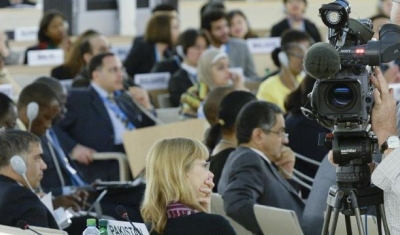Geneva Consultation on the ‘Human Rights Guiding Principles on State Obligations with Regards to Private Involvement in Education’
Event
Co-organized with the Missions of Finland, France and Portugal, NORRAG, Amnesty International, the Equal Education Law Centre, the Global Initiative for Economic, Social and Cultural Rights (GI-ESCR), the Initiative for Economic and Social Rights, and the Right to Education Initiative (RTE).
Since 2015 a loose network of stakeholders have been working together to support the development, by experts, of Guiding Principles (GPs) that compile existing customary and conventional human rights law as it relates to private actors in education. The working title of the GPs is ‘Human Rights Guiding Principles on State Obligations with regards to Private Involvement in Education’. They are intended to be operational in, and adaptable to, different contexts and aim to provide a basis for policy work and serve as a concrete tool that states and policy-makers can use.
The content of the GPs will be defined and finalised by a group of recognized independent experts from around the world through ongoing work, until a finalisation conference to be held in the Fall of 2018. The ambition is that the text will become the normative reference point and policy tool on the issue of private involvement in education.
As part of a broad consultative process of the GPs, various regional and thematic consultations have been convened over the course of 2016 and 2017, which included input from a wide range of stakeholders, including civil society organizations, state representatives, human rights organizations, academics, international and regional organizations, experts in the fields of education and law, and other actors.
The Geneva Consultation provides an opportunity to discuss the process, key concepts, and the policy implications for states and existing UN processes, such as the Sustainable Development Goals (SDGs) 4, with Geneva-based stakeholders, including permanent missions, NGOs, international organizations, UN experts and academic researchers.
To find out more about the GPs, please visit the FAQs page on te GPs.
Registration
You need to register to attend the Geneva consultation.










